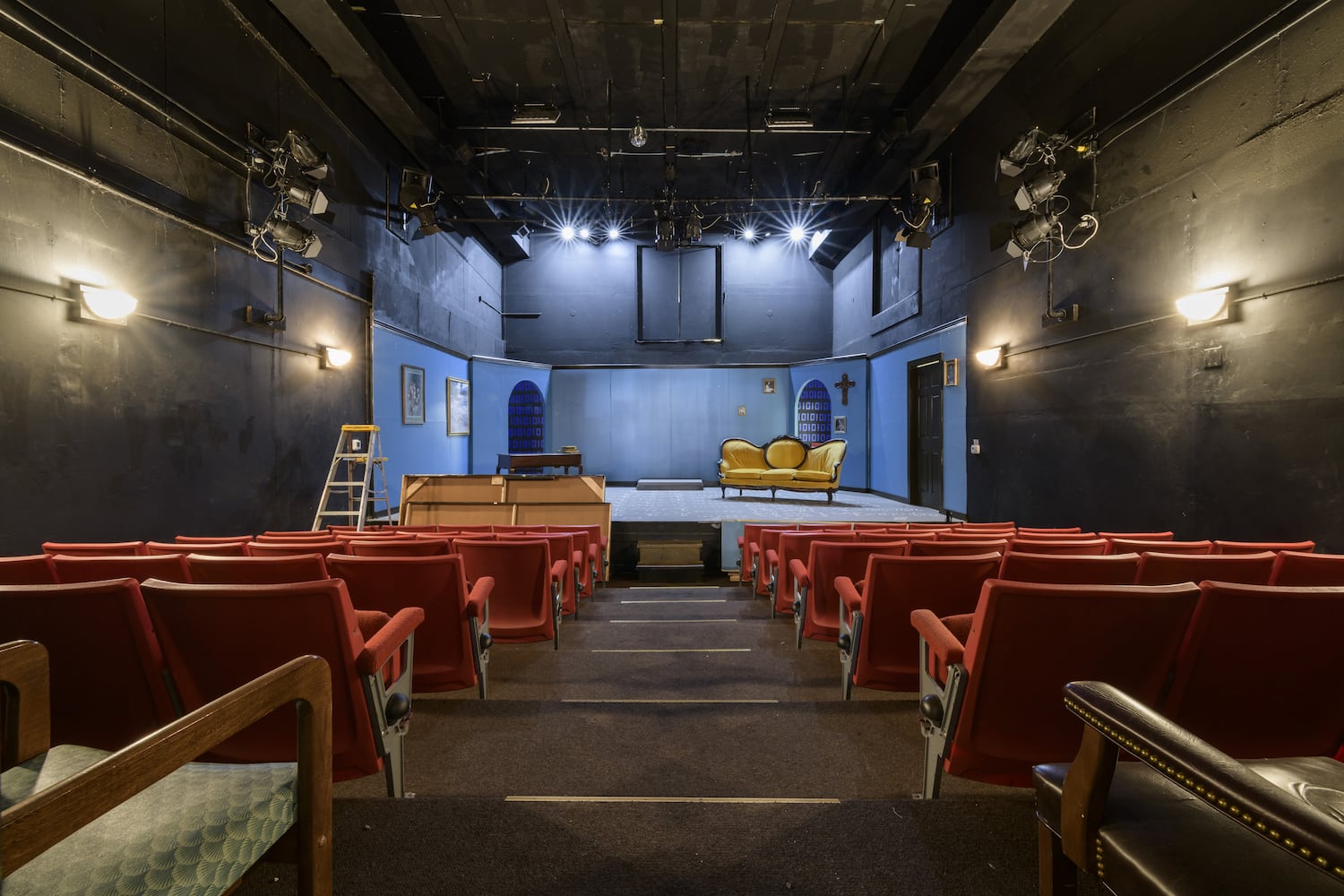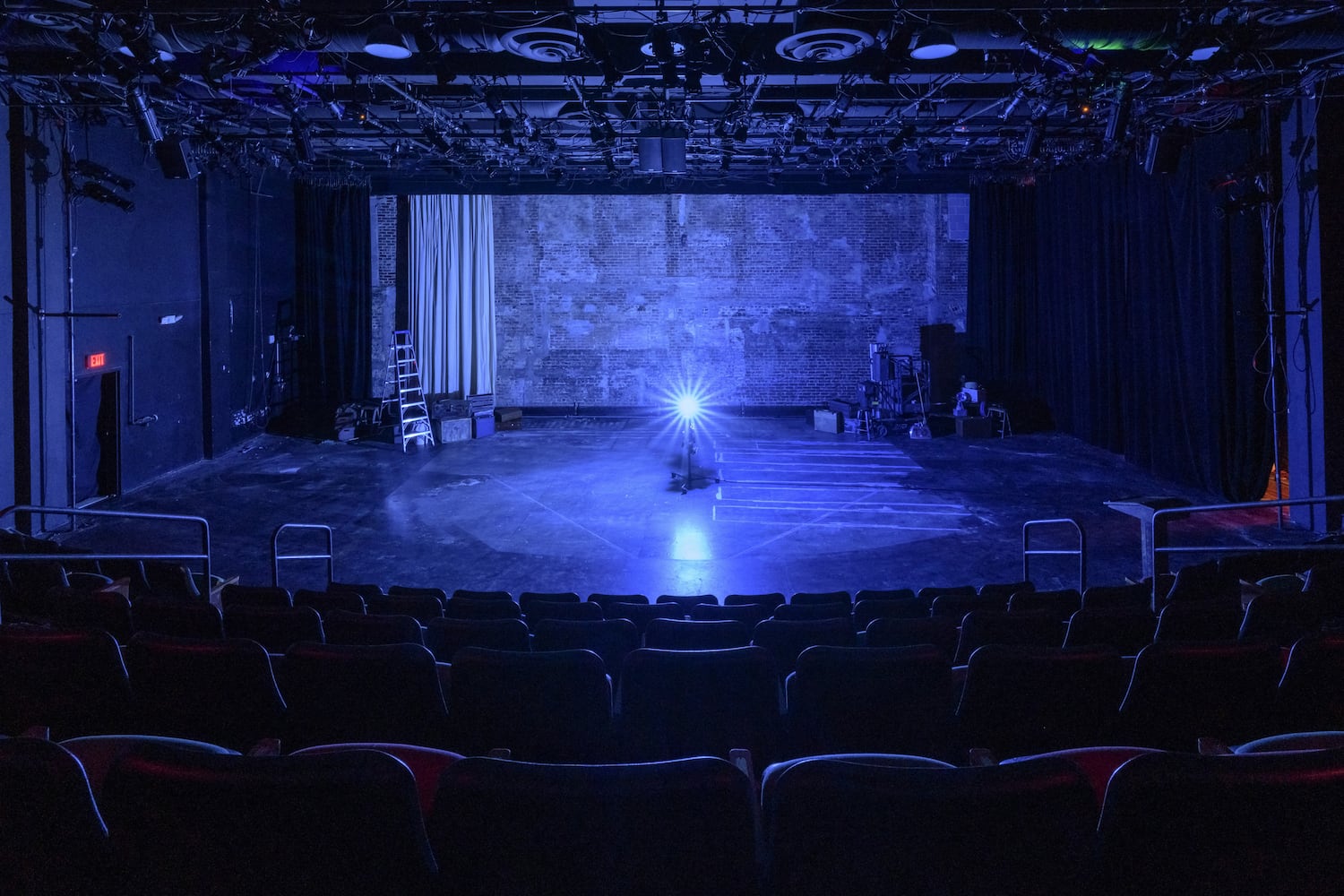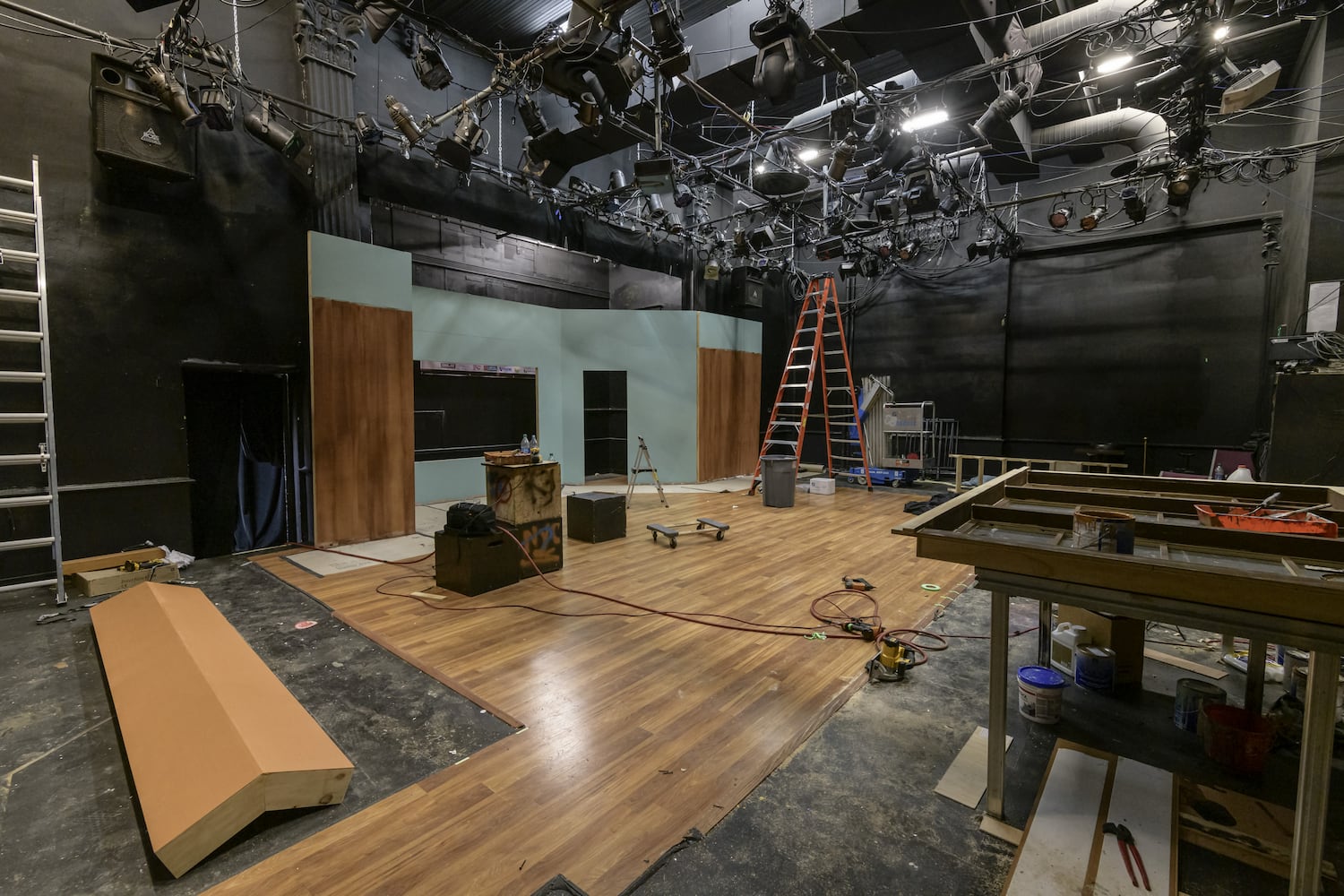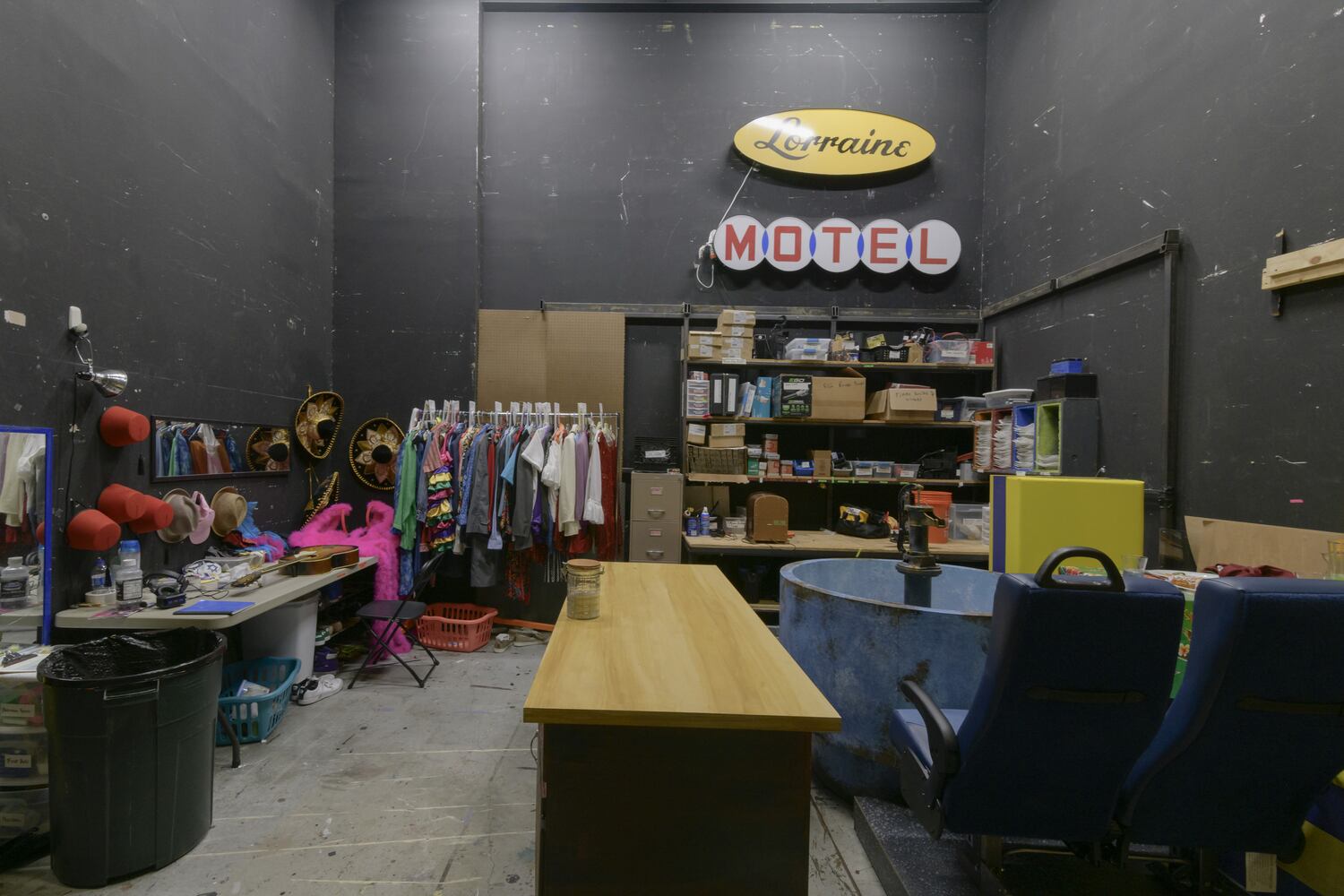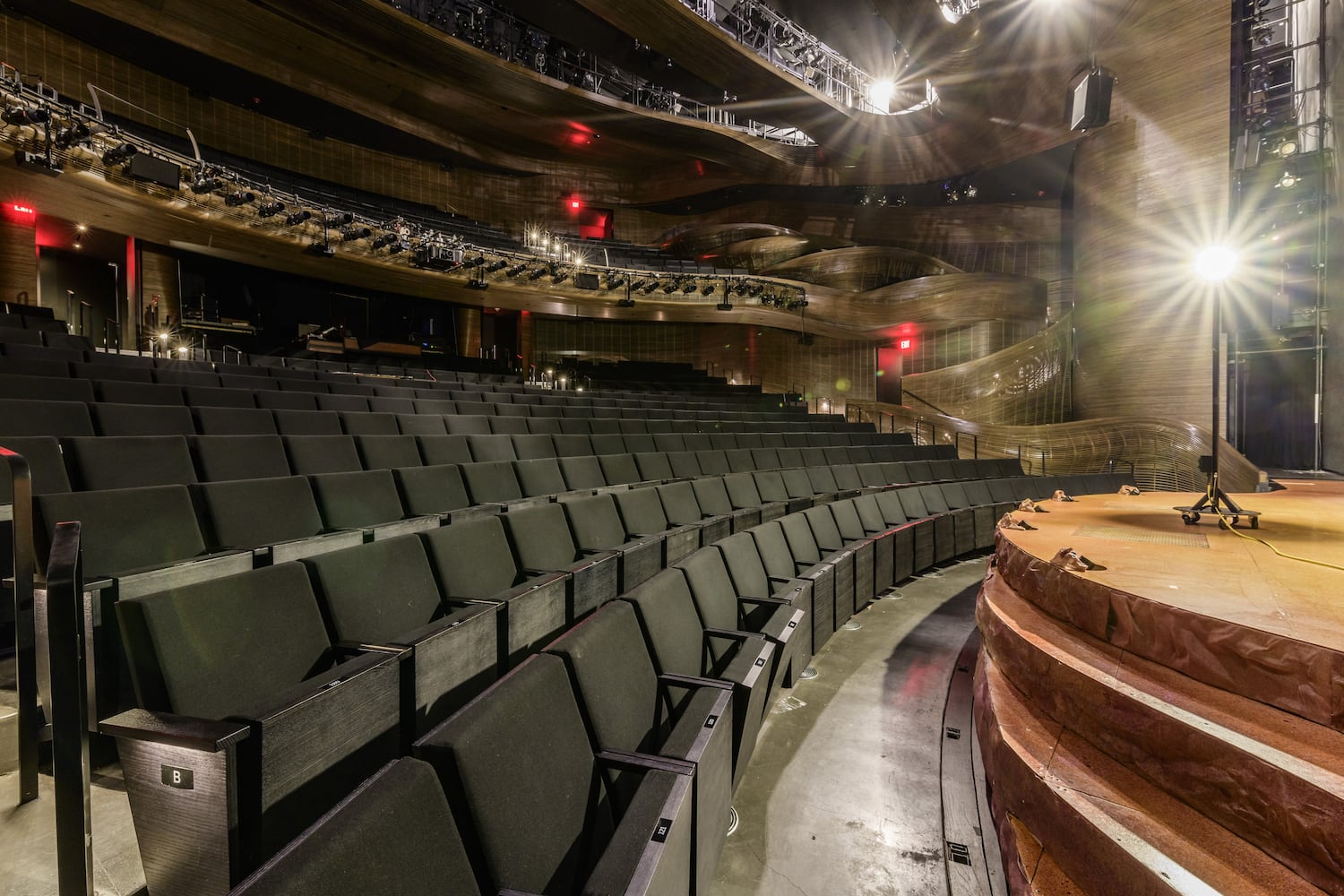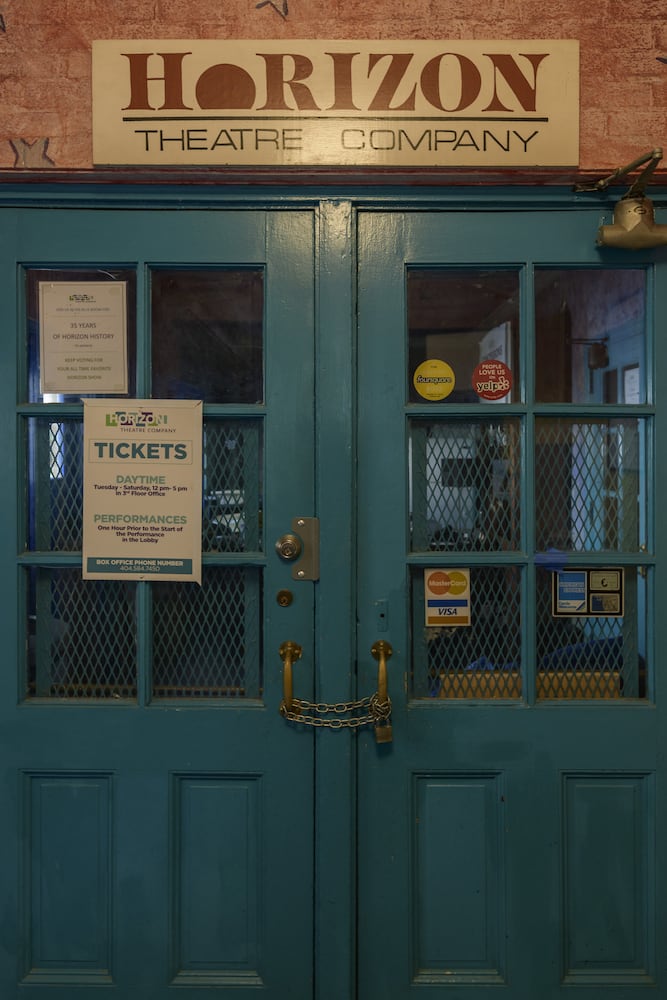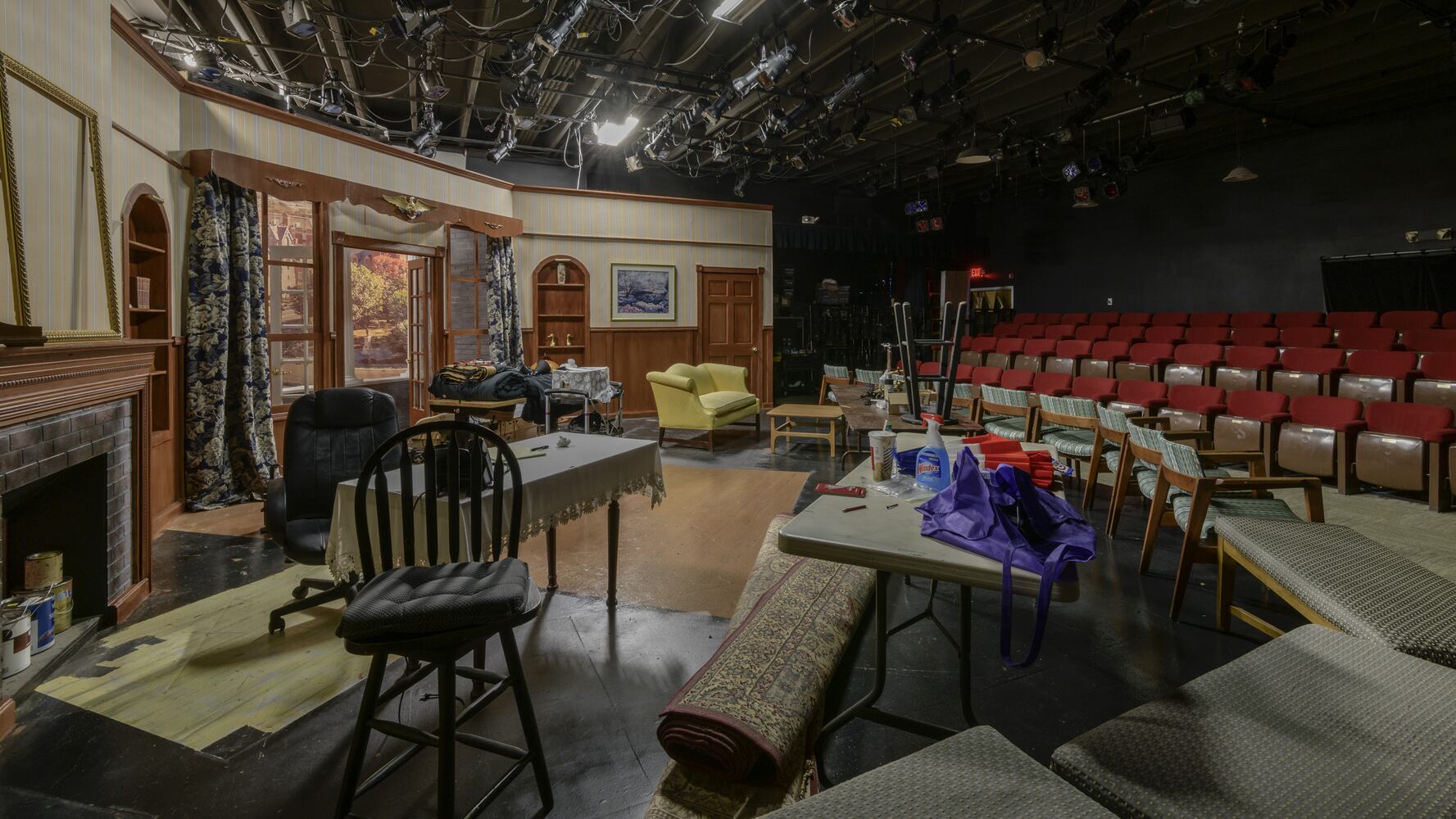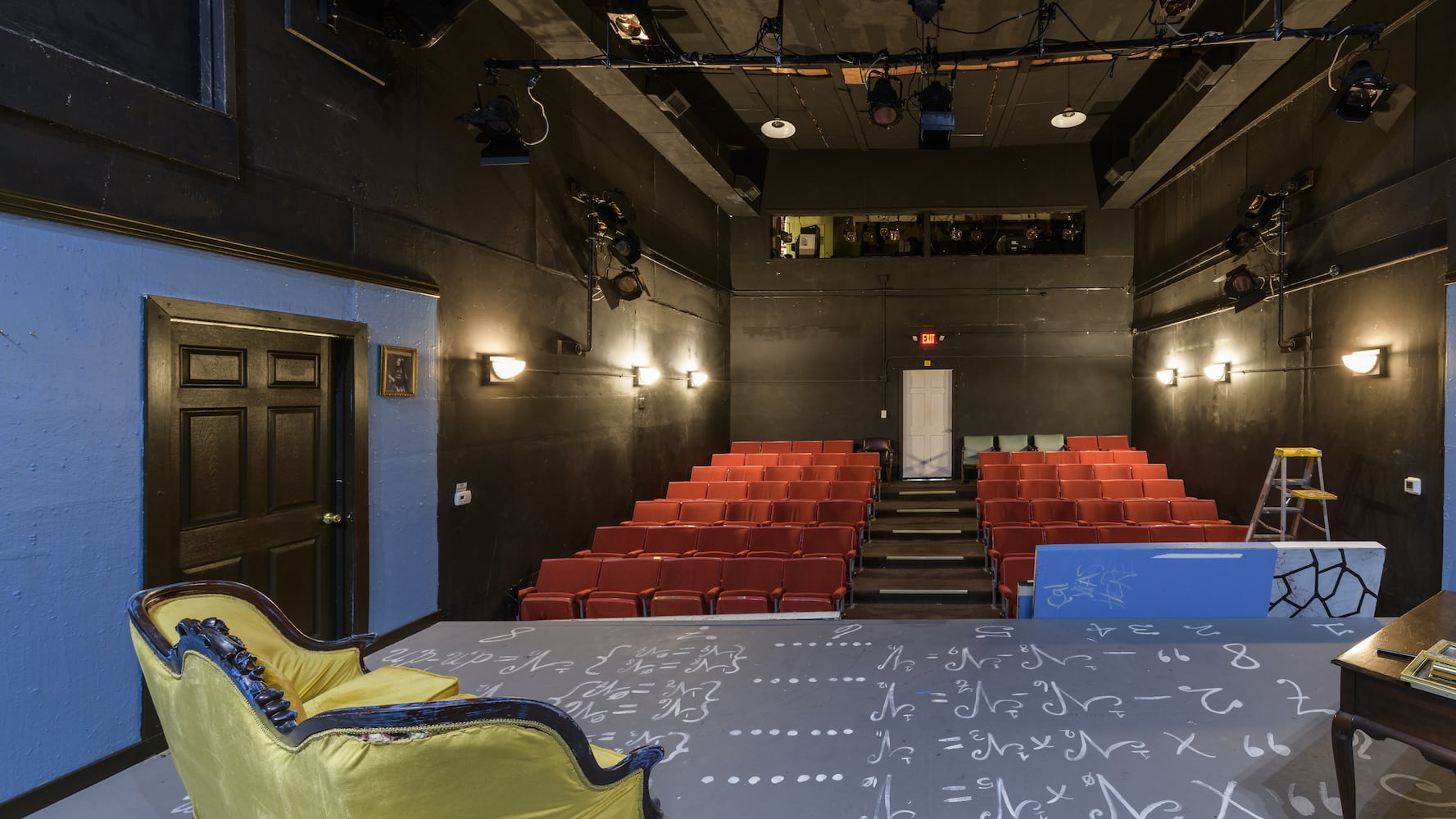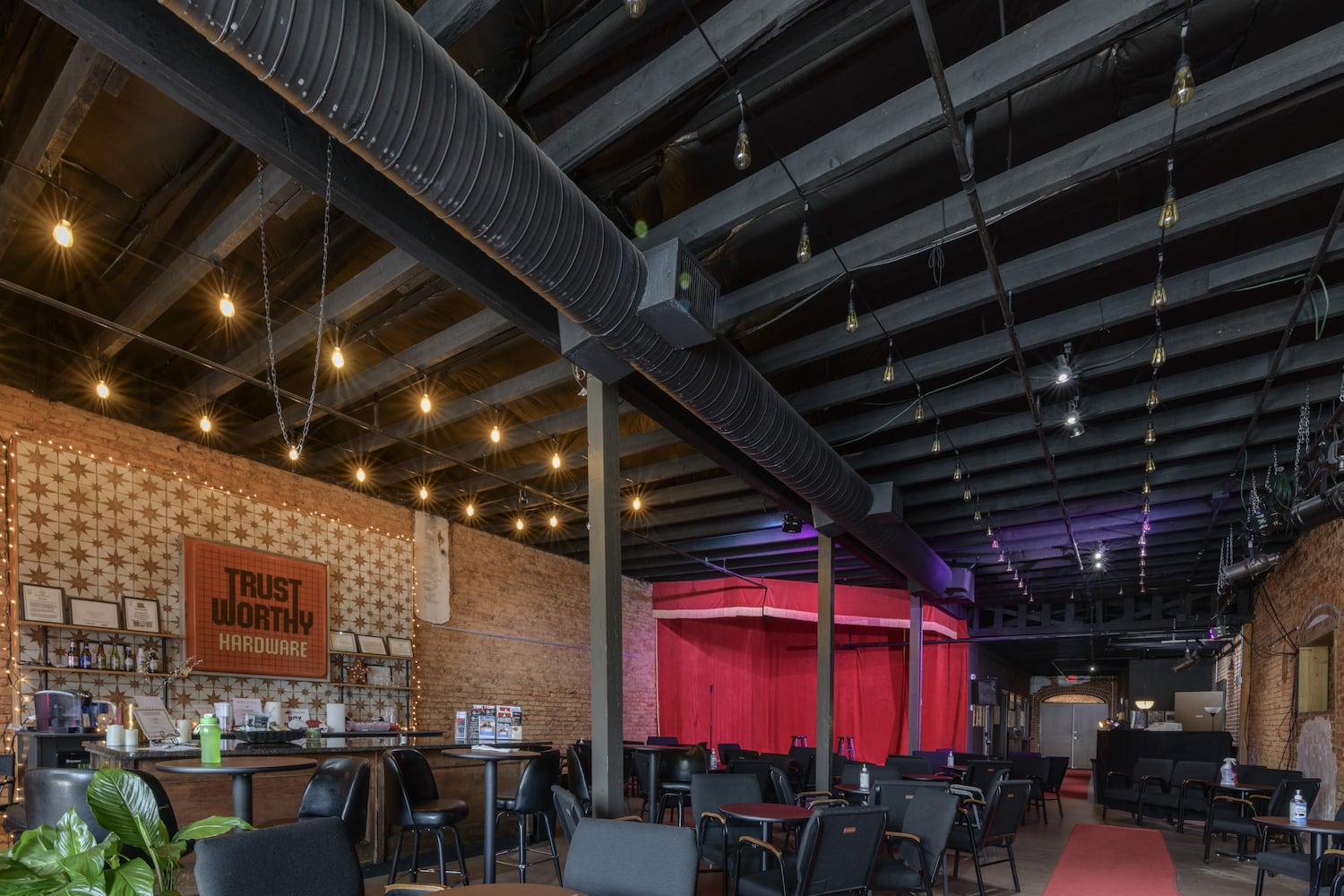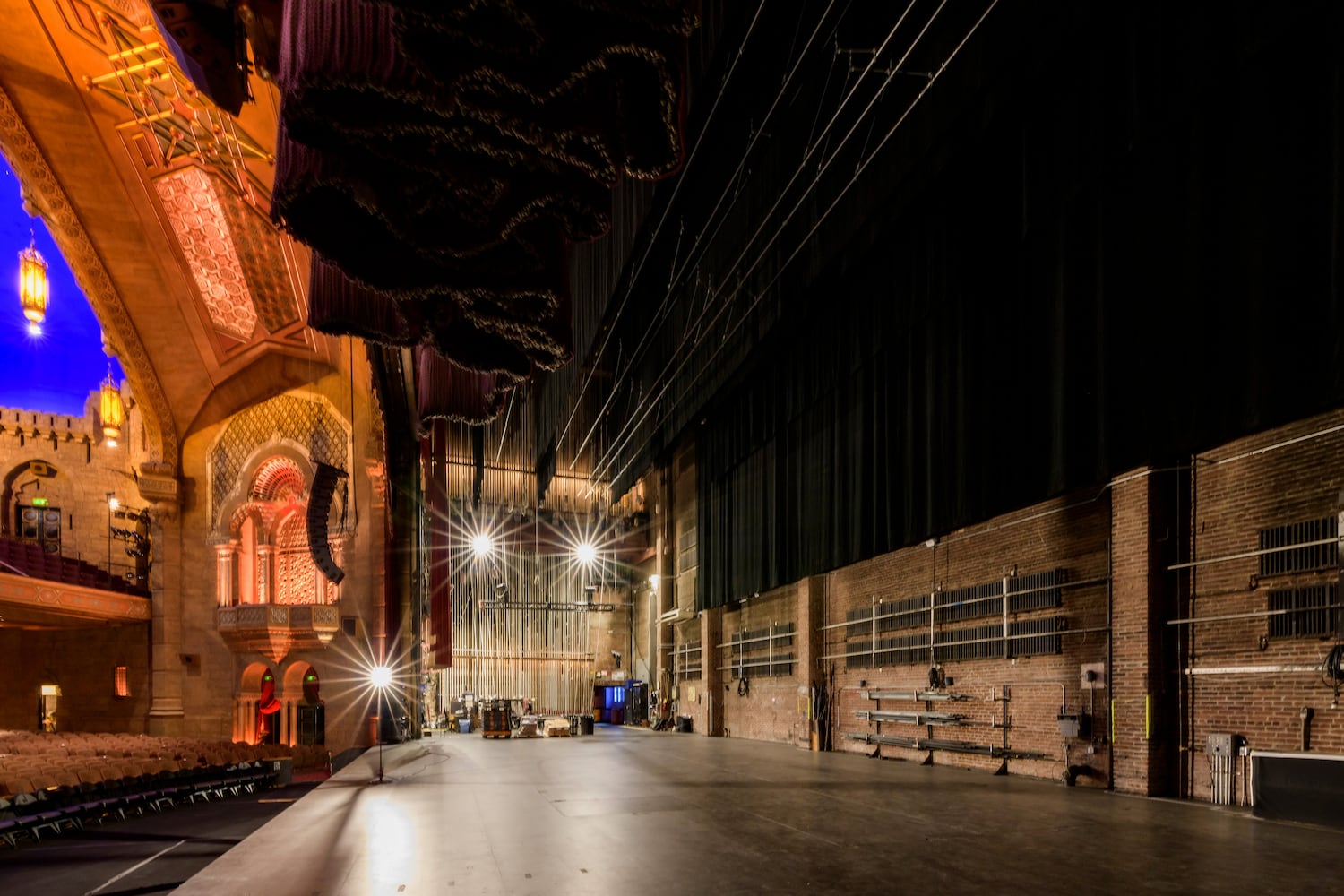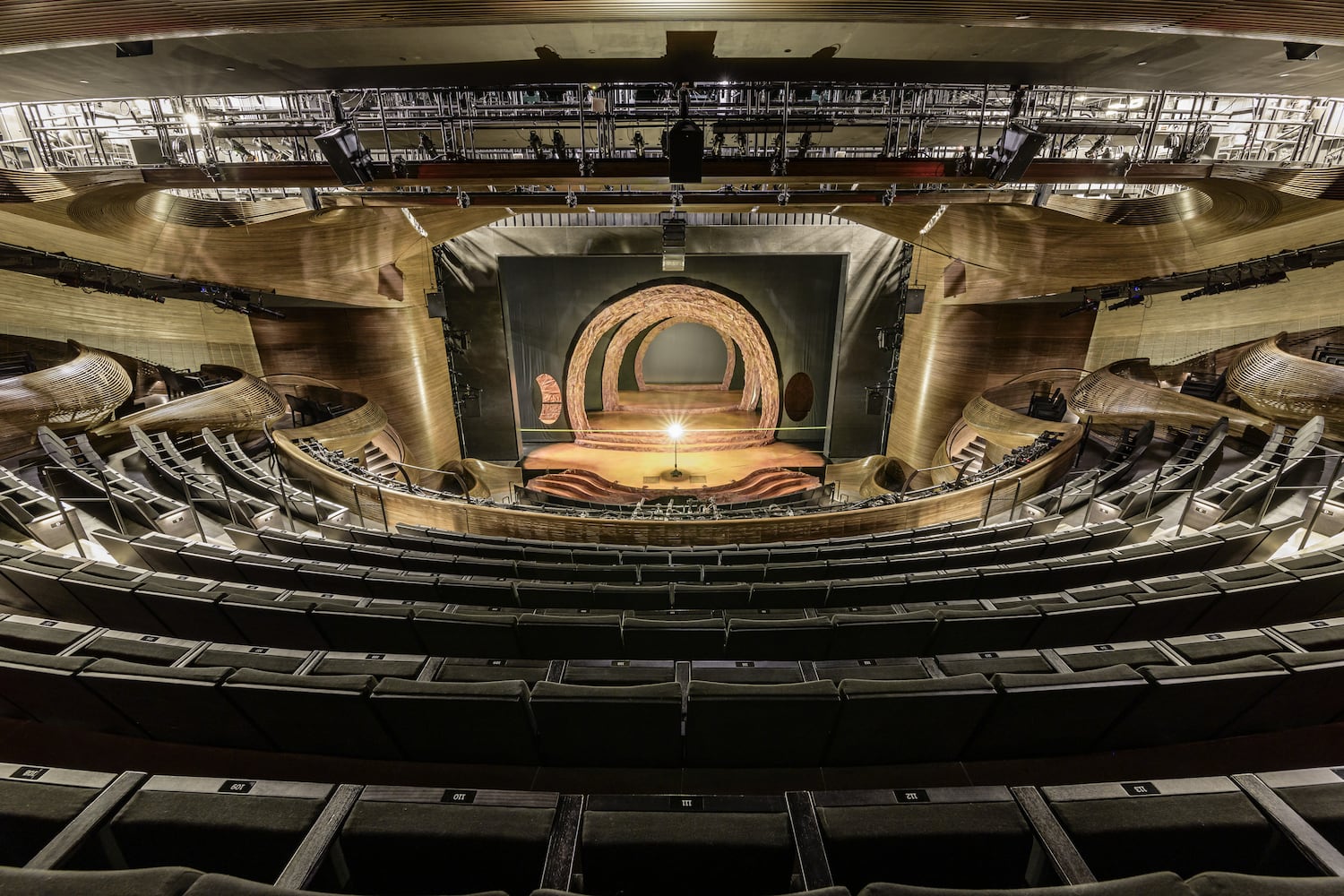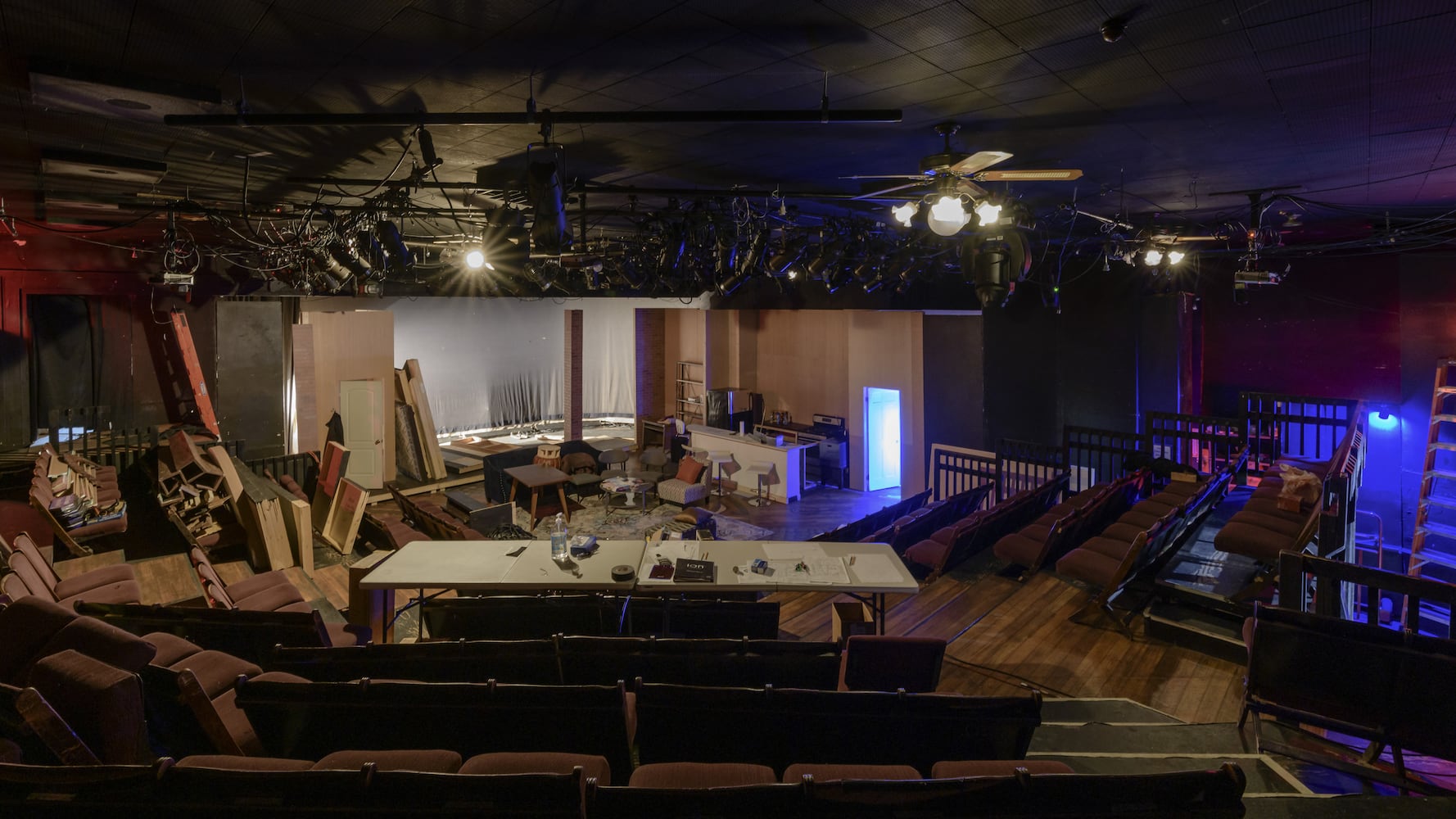The scenes in Michael Boatright’s photo project “Dark Houses” call to mind images of Dust Bowl shacks abandoned by their owners, with dishes still on the table.
These are the abandoned theaters all over Atlanta and North Georgia, silenced by the coronavirus pandemic.
Some, like the Legion Theatre in Cartersville, still have scenery on stage, yet to be struck. Some are littered with tools and building materials, where carpenters stopped in the middle of set-building for a show that never went on.
“I could feel the sadness,” said Boatright, 61, a former computer engineer, now a full-time photographer. “The whole idea of the project is to present that lonely image.”
Boatright began photographing empty theaters in June, and has documented 35 stages in 30 different buildings.
He estimates that the theaters he has visited represent a total of 15,000 seats that have stayed empty for the last six months, or a $65 million loss for Atlanta’s theater industry. And that’s just ticket sales.
Other losses are more painful. Right after Boatright photographed the locked-down Village Theater in downtown Atlanta, physician Frank Lockwood, a founding member of the theater company and a regular actor, became one of 100 medical personnel in Atlanta to die of COVID-19.
Boatright visited the big and the small. He travelled to Cartersville to photograph the tiny 70-seat Legion Theatre, home to the Pumphouse Players, one of the oldest community theaters in Georgia. He went to the Woodruff Arts Center to snap the 650-seat swank Alliance Theatre, outfitted only last year with a $32 million floor-to-ceiling rebuild, before being silenced.
In Boatright’s photographs the Horizon Theatre in Little Five Points is filled with the clutter of a set-building project at the midway point. “They were in construction for a new show called “The Light” by Loy A. Webb. In the middle of construction, (co-founder) Jeff Adler basically put his tools down and left. They hadn’t been in the theater for five or six weeks when we went in.”
At the Fox Theatre workers were busy re-painting the sky-blue ceiling when Boatright stopped in. (Before walking inside he was required to take his temperature, don a mask and sign a release form.)
A season ticket holder at Theatrical Outfit, Boatright had Row B center seats for the opening night of “Indecent,” but the Balzer Theatre went quiet just before that show.
He shot photos at the sparsely attended going away party for the Theatrical Outfit’s outgoing artistic director Tom Key (social distancing required a small crowd), and then came back to the theater for his photo project, which was illuminated only by the stage’s ghost-light.
“I adore the Balzer,” he said. “It really made me very sad being there and it being so empty.”
Boatright came to a career in photography later in life, after working for 35 years in information technology.
He graduated from Georgia Tech in 1982 with a degree in computer science, worked for IBM for 17 years, and was loaned to the Atlanta Committee for the Olympic Games to help create the scoring and information systems for the television broadcasts.
A lifelong photographer, he opened a studio six years ago, and went into the business full-time in 2017. Some of his photographs will be part of an Atlanta Celebrates Photography show this fall.
Visitors to his website, michaelboatright.com/darkhousesatlanta, can see all of the dark houses in the project.
About the Author
The Latest
Featured
